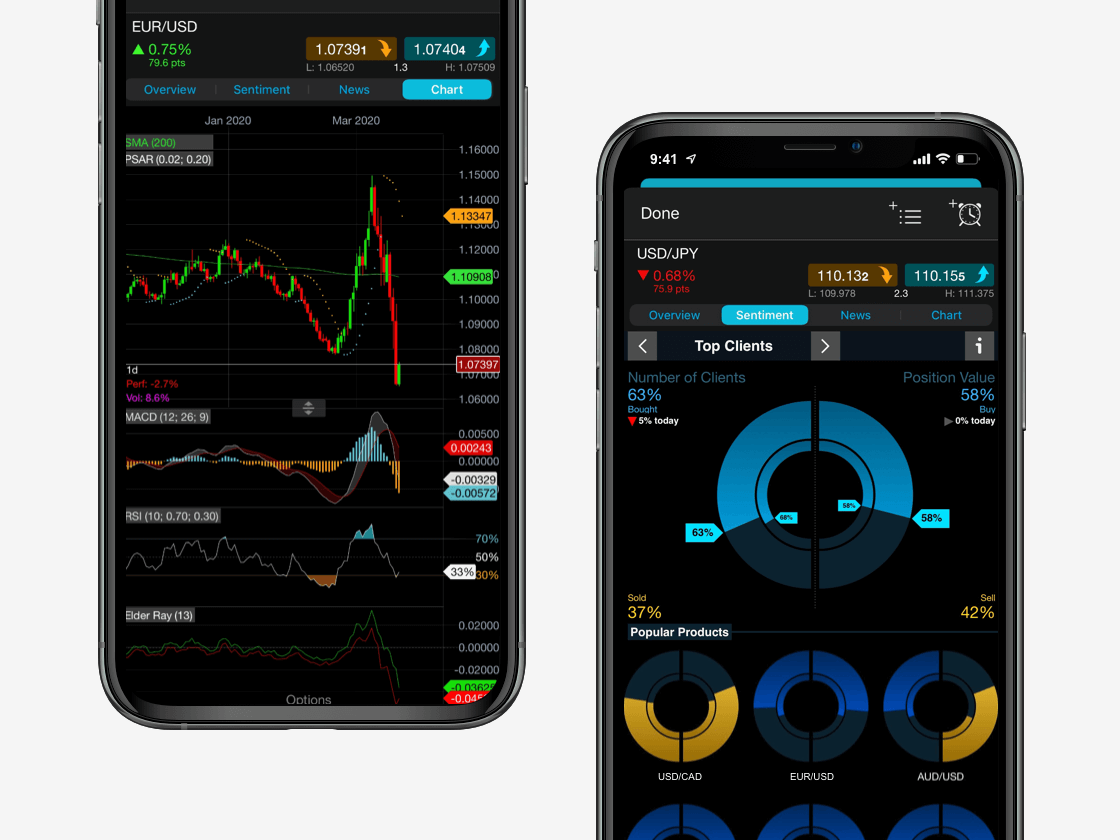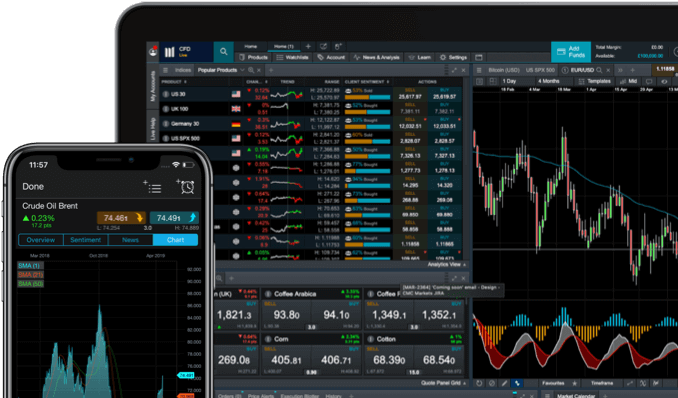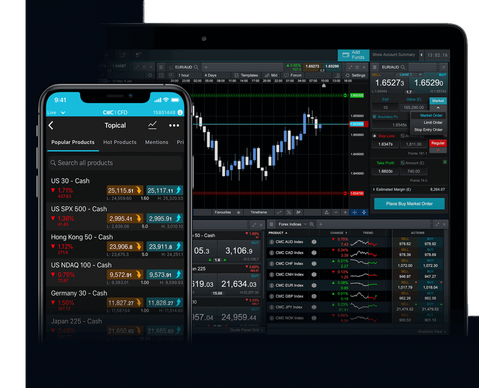
What are bonds?
A bond is a fixed-income instrument, or debt security, and represents a long-term lending agreement between a borrower and lender – effectively an ‘IOU’. The bond issuer is often a corporation or a government, and the funds are used to finance a project or operation. The borrower promises to pay back the bond to the lender at a prior agreed date, and until then, are usually required to pay fixed or variable interest rate payments. Investors who purchase a bond are, in essence, lending money to the issuer for a specified period of time.
Bond trading is a popular way for investors to diversify their portfolio, due to the lower, but more stable returns. Bond yields are affected by interest rates. If interest rates fall, then the interest rate on the bond becomes more attractive. On the other hand, if rates go up, bonds prices fall.

Types of bonds
There are numerous types of bonds that are chosen as an investment, or for trading. They vary depending on who is the bond issuer, but most follow the same principle with these key features:
- Issue price: the price at which the bond issuer sells the bond
- Maturity date: the agreed-upon date the bond issuer pays back the bond
- Face value: the money the bond is worth at maturity
- Coupon rate: the interest rate the bond issuer pays on the bond’s face value
- Coupon date: the date the bond issuer makes the interest payments
Government bonds
Government bonds are a loan to the government for an agreed rate of interest in return. As with all bonds, it’s for an agreed period of time, with the interest paid at regular periods, and the original investment returned at the end of the time period, also known as the maturity date. In the UK, these can be referred to as gilts, whereas in the US, these are known as treasuries. Read more about UK gilts.
Corporate bonds
Corporate bonds work in the same way as government bonds, but involve loaning capital to a company, rather than the government. Thus, they are a form of debt security issued by a particular corporation, and sold to investors. Similar to a government bond, they’ll often be used for a company operation or future project. They are often riskier than government bonds as taxes can’t be used to pay for the bonds, so interest rates tend to be higher.
Municipal bonds
Municipal bonds, on the other hand, are issued by cities or countries and other local institutions to finance infrastructure and expenditures. These often include schools, bridges or roads. An appeal of these bonds is that the coupons paid out are usually tax-free.
High-yield bonds
High-yield or "junk bonds" are of a lower status than corporate or government bonds. High-yield bonds tend to come start-up businesses and therefore have lower credit ratings and are more likely to default, making them slightly riskier investments. However, they can still be a good way to diversify your portfolio.
Trade on 50+ bonds in the treasury market
How to trade bonds
Traders looking to get exposure to fixed income could purchase shares of a fund that holds bonds, or buy individual bonds. Depending on individual factors like time horizon, risk profile and available capital, a mutual fund or exchange-traded funds (ETFs) may be among options worth considering.
You can spread bet or trade CFDs on rates and bonds, and trade on margin, which enables you to enter a position that is larger than your initial account balance. Read our article on how to invest in bonds. Here are some basic steps to get started:
- Open an account. A live account will grant you automatic access to a free demo account, where you can practise bond trading with virtual funds.
- Research the treasuries market. Find out what fundamental factors have an effect on bond prices, including interest rates, yields and credit risk.
- Decide whether you want to buy or sell. Define you entry and exit positions on the trading chart.
- Make use of risk-management tools. Bond trading can be volatile, so it is sensible to take advantage of stop-loss orders to minimise capital loss.
Bonds are a popular asset to trade as, like many other markets such as shares and indices, you can trade on leverage, so you only need to deposit a percentage of the full trade value. Any profit or loss made is amplified, because it’s based on the full value of the trade. This is not possible with mutual funds. You can speculate on the price movements of bonds, choosing a long or short position, depending on whether you think the price of the bond will rise or fall. Movements in bond prices depend on economic factors, such as inflation or growth.
Trading bonds is often considered more predictable than the trading of equities, as their prices tend to fluctuate in line with the broader economic climate. Traders who can follow economic trends and stay across interest-rate developments may favour trading bonds.
Bonds can offer a good alternative if the stock market is negatively affected by economic trends, and the value of bonds increases. Likewise, if the interest rates are on the rise, bonds can look more appealing than stocks as they often offer decent value relative to equities. Read more about bonds vs stocks.
Advantages of bonds
- You receive income through interest payments.
- By reselling the bonds before the maturity date at a higher price, you can make profits.
- They are often considered less risky than stocks.
- Bonds are fairly liquid assets – government bonds, in particular, are liquid, whereas corporate bonds are slightly less so.
Disadvantages of bonds
- Bond yields can fall if interest rates rise and at the maturity date, you could be left with a smaller payment than originally paid out.
- Rising inflation could also cause the bond value to fall.
- Any financial asset being traded, or invested in, carries risk.
- When trading on margin, although profits are magnified, losses are too.
- Holding a bond position overnight via a CFD/spread betting broker could leave you vulnerable to slippage, should there be economic news that affects the bond.

Practise bond trading on the go
Seamlessly open and close trades, track your progress and set up alerts
Summary
A bond is a debt security issued usually by a corporation or government body. They are a popular choice for investors who want to receive interest payments over a long period of time. Bonds are also popular due to their liquidity, and can help to offset risk. Traders may choose to trade bonds over stocks due to their perceived lower risk and increased predictability.
Take a look at our bond trading overview for further details, or browse our range of platform tutorials, which will help you to navigate the platform easier and highlight technical and fundamental tools that may come in handy when trading on treasuries.

